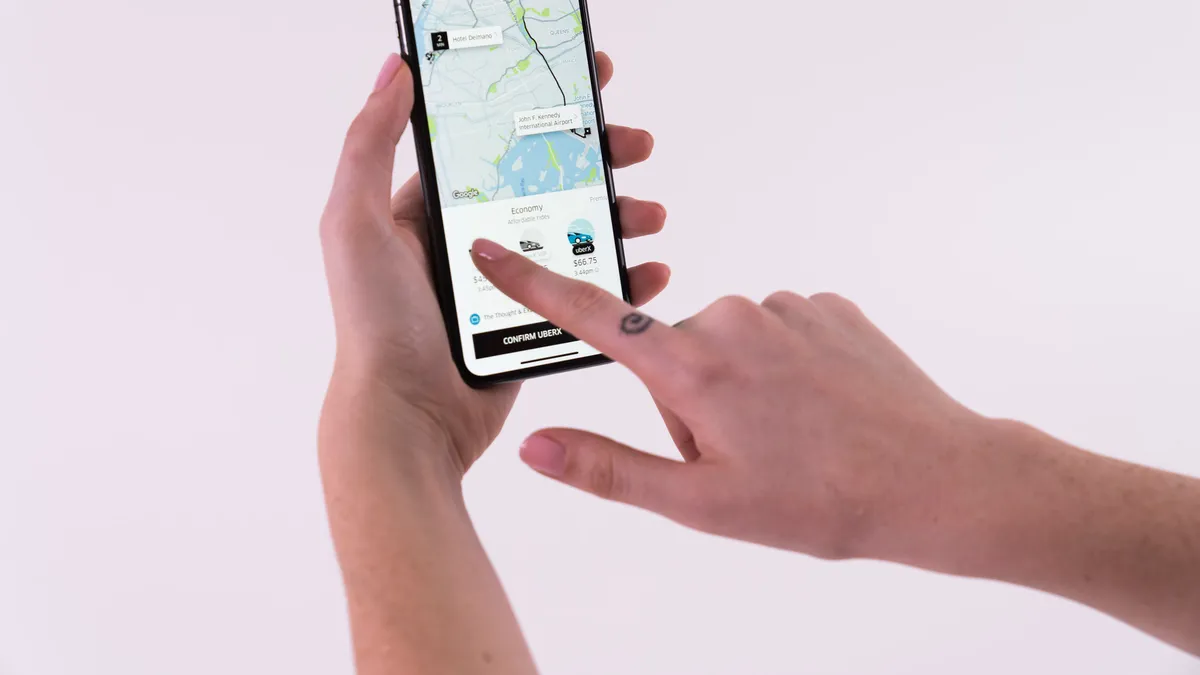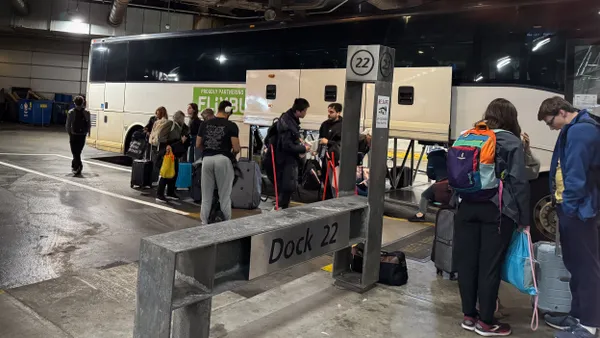Dive Brief:
- Uber last week launched a new feature, Non-Stop Shared Rides (NSSR), that incentivizes taking shared rides instead of single-passenger trips.
- At certain times, customers who request an UberX ride will receive the option of taking the last available seat in an Uber Pool. That customer is guaranteed to be the first to be dropped off and also will get Uber Cash for use toward the next ride or Uber Eats order.
- NSSR is now available in 16 U.S. cities. The company hinted that other options for shared rides are coming down the pipeline soon. "Non-Stop Shared Rides is one experience that gives riders more choice around accessing Uber Pool, part of our efforts to expand shared rides in unique ways," Neil Kamireddy, senior product manager for shared rides, told Smart Cities Dive in an email.
Dive Insight:
Uber Pool has proven attractive to some customers due to its lower price than traditional service and the environmental benefits of carpooling over single-passenger trips. But a drawback is that picking up multiple passengers can strip a trip of its convenience. The experience becomes more akin to a ride on public transit than the direct-to-destination nature of taxis or other car services.
The NSSR feature could boost shared-ride convenience — but only for the last rider to be picked up. The feature also isn't offered for every ride so customers never know when a prompt will come up and offer them the service.
This feature rolled out in more than a dozen cities, with many of the usual major cities — including Boston, Chicago, Los Angeles, San Francisco, Seattle and Washington, DC — included. However, New York City is notably absent.
An Uber spokesperson told Smart Cities Dive the company believes Non-Stop Shared Rides has potential in New York and they hope to introduce it there soon. However, New York's unique ride-hailing environment — especially the regulatory constraints the city was the first to introduce on ride-hailing last year — means it will require more planning and custom technology.
NSSR is a feature that could ease traffic congestion by encouraging more people to share one vehicle instead of those passengers riding in separate vehicles. The Uber spokesperson said it's unfortunate that it will take longer for the benefits of NSSR to reach customers in New York, and the situation re-emphasizes Uber's view that simpler regulations can encourage innovation and benefit citizens and cities. Earlier this month, Uber CEO Dara Khosrowshahi called New York's regulations and its newly extended cap on new ride-hailing licenses "malarkey."
Perhaps ironically, New York's crackdown was partially intended to decrease congestion, which leaders say is significantly worsened by ride-hailing. New York also was the first U.S. city to introduce a congestion pricing plan to ease traffic, although that has yet to take effect. Other cities including Chicago, Philadelphia and Los Angeles are examining congestion pricing and/or taxes or other regulations on ride-hailing to cut down on congestion.












